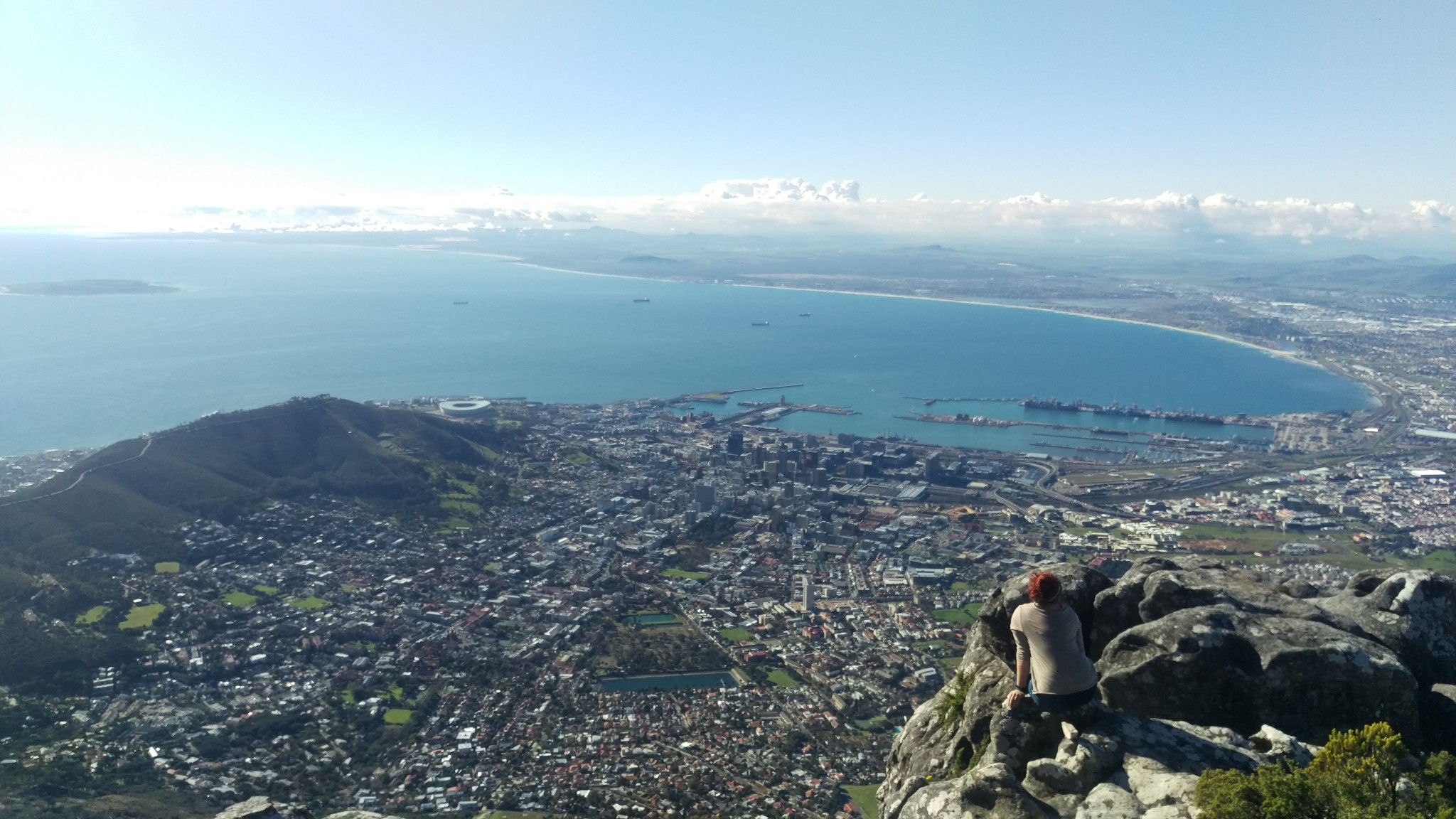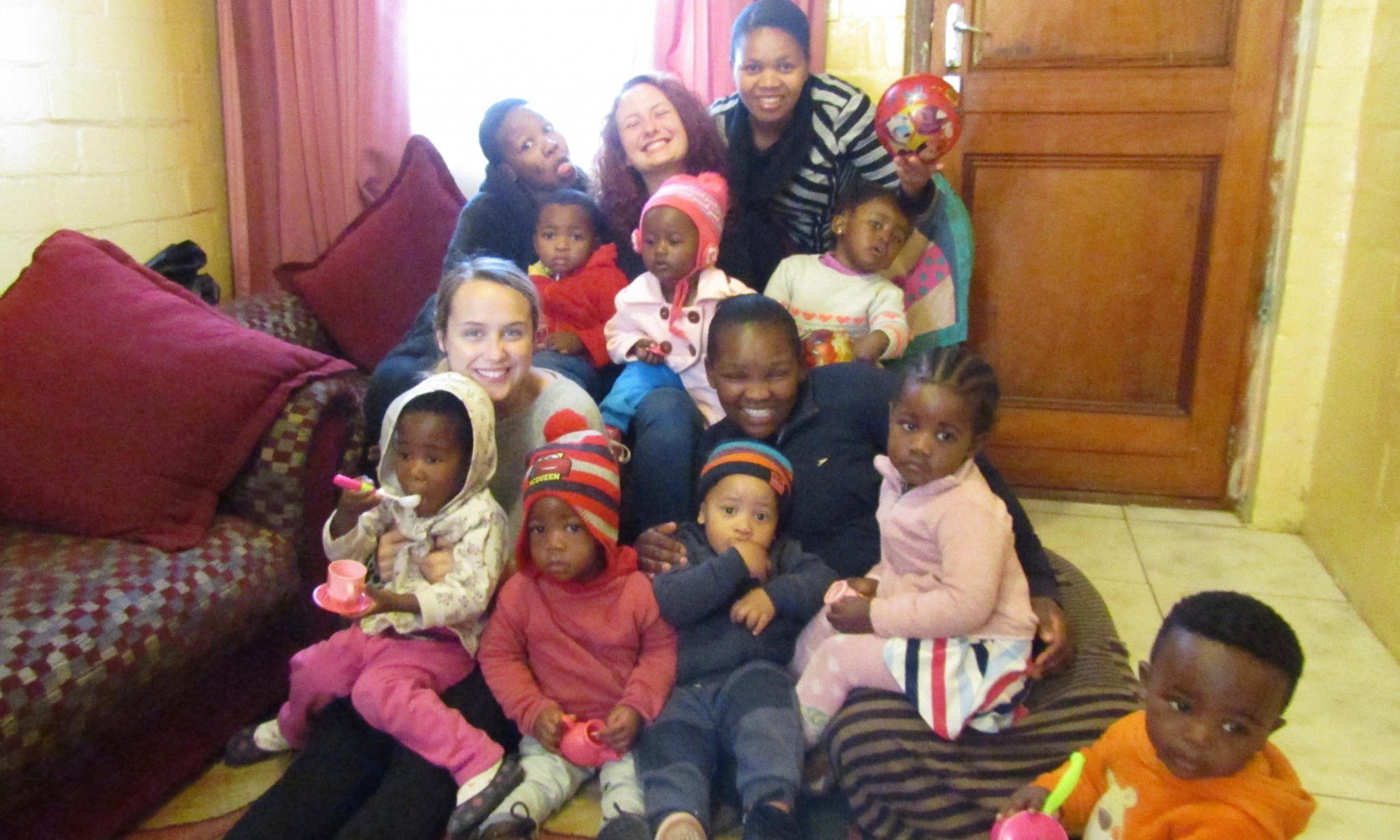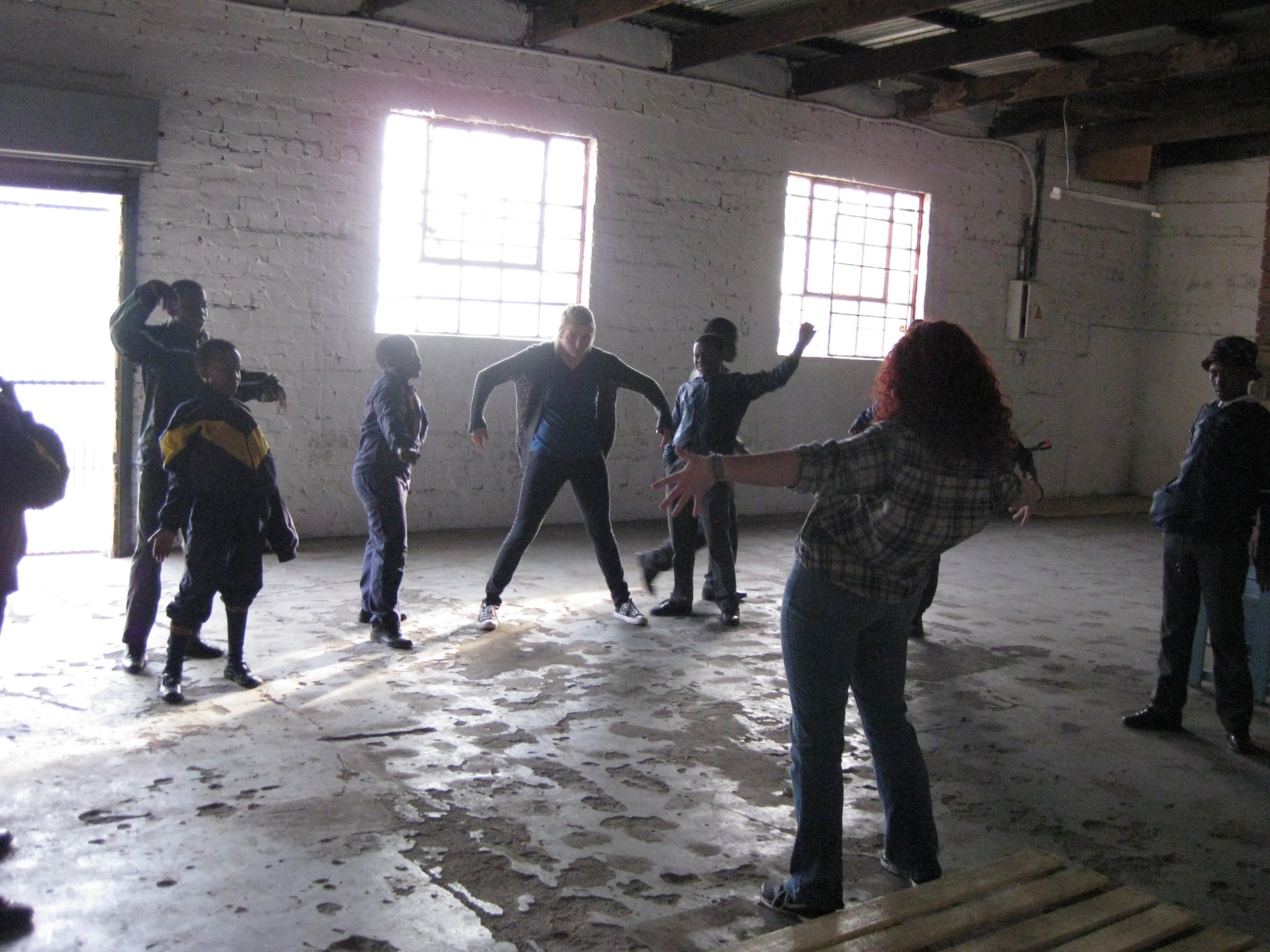Darby Guinn, honors English and journalism major, spent the summer learning the joys and difficulties of piloting a Peacework service learning initiative in Cape Town, South Africa. Darby’s bond with her fellow travelers and her mission to make real changes made all the difference as she contemplated who should benefit most from a service learning experience.
Before I applied for my program, service learning wasn’t a concept I’d heard of. Once I read about it, though, it made sense, and something about it fired me up in a way that I’d never felt before. Volunteering, but more. A give and a take, both sides learning something from the other. I was sold.
I read, researched, and went to all the meetings. I was ready to volunteer in a way that mattered. I didn’t want to come back having gotten more than I’d given or having spent my time on a project that would die as soon as I left. I wasn’t going to change the world, but I felt like I’d figured out how to help it a bit or at least not exacerbate the problem of “voluntourism.”
My summer was spent in the township of Kayamandi outside of Stellenbosch, Western Cape, South Africa, with three other girls I’d only really met in our prep meetings. It was the hardest, most thought-provoking and amazing thing I’ve done. I spent my mornings working in a creche, or preschool, and in the afternoons I was assigned to an emerging art gallery at the edge of the township.
Our assignment, which was given to us by the U of A and our organization Peacework, was to evaluate a need in our assigned places and build a program to fill that need. We were a new program for both the university and Peacework, a pilot of a pilot. As the weeks went by, the difficulties of what we signed up for started to build. Calculate in language barriers, lack of resources, apathetic people, the expectations of the people we worked with, and the fact that we only had one reliable community partner. Things got complicated quickly.
Being a part of a self-led service learning program is one of those unique experiences in which you are provided with opportunity at every turn. There was something exciting about that idea; the entire experience relied on what I could give to it. We were thrust into situations where we didn’t know what was going on, but despite it all, we managed and learned. My project with the art gallery developed quickly. In the second week, we were teaching after school art lessons to kids from the township. From there it grew, and soon we had kids from a few different primaries. High schoolers and students from the local university were showing interest in volunteering for the program, and the kids who participated were producing amazing work. However, there were a few pillars on which the program relied upon, and when one fell away, it all fell apart. It was heartbreaking for me, but our time was limited and I was still determined to make something that would last. We invested in another project, cataloguing books for Kayamandi high school’s library and helping them secure new shelving and Xhosa language books. It was good, but the feeling of failure was a hard one to shake.
The freezing nights around the table playing cards with Sam, Paulina and Ellie may have taught me the most, though. Every day in Kayamandi was full of experience. We saw and heard things that were haunting sometimes, and life could be a far leap from our comfort zone. Yet it was the reality of the people in Kayamandi, so we sought to understand. Around our table, we picked apart our experiences, talked about what made us uncomfortable, sad or even what gave us hope. We talked race relations and our place in them, volunteering and its flaws, and we were constantly breaking down our projects, trying to make them better. Those girls held me up and I tried to do the same for them. We shared tears, laughter and a group concern for our waning level of toilet paper. We fought and sometimes we’d snap, but in the end, we all learned to carry a level of grace with us always. Eating, breathing, sleeping and working with the same three people for 11 weeks bonds you like nothing else, and the friendships that I’ve built with these three women… Well, there’s nothing like it.
At one point in the program, when we were having trouble figuring out the best way to make a meaningful difference, someone said that it was more important for us to get something out of it. That isn’t what this trip was about, and we fought tooth and nail the entire time to make sure that wasn’t what happened. We watched groups come in, volunteers that were there for a week. They’d paint a creche or a house. One time, a group even painted a house in the morning and it rained that afternoon. Historically, other volunteers came in with grand offers of money or computers, never to make good on their promises but were sure to get the pictures with the kids to prove that they were real humanitarians. These were the precedents we fought. This is what people expected us to be. In the end, I’m not sure if we ever could’ve done enough, but we filled the need that we could, providing resources and support in the ways we knew how.
As the last week comes to an end, I can’t say that I want to leave. The people I’ve met here, the problems I see, the possibilities and the work yet to be done, it all makes me want to stay and keep working. However, there’s work to be done everywhere and finishing my education will only make me a better volunteer because I’m far from done. For now, I’ll leave a part of my heart in South Africa, and to everyone who helped me along the way, enkosi kakhul.



